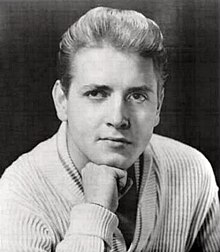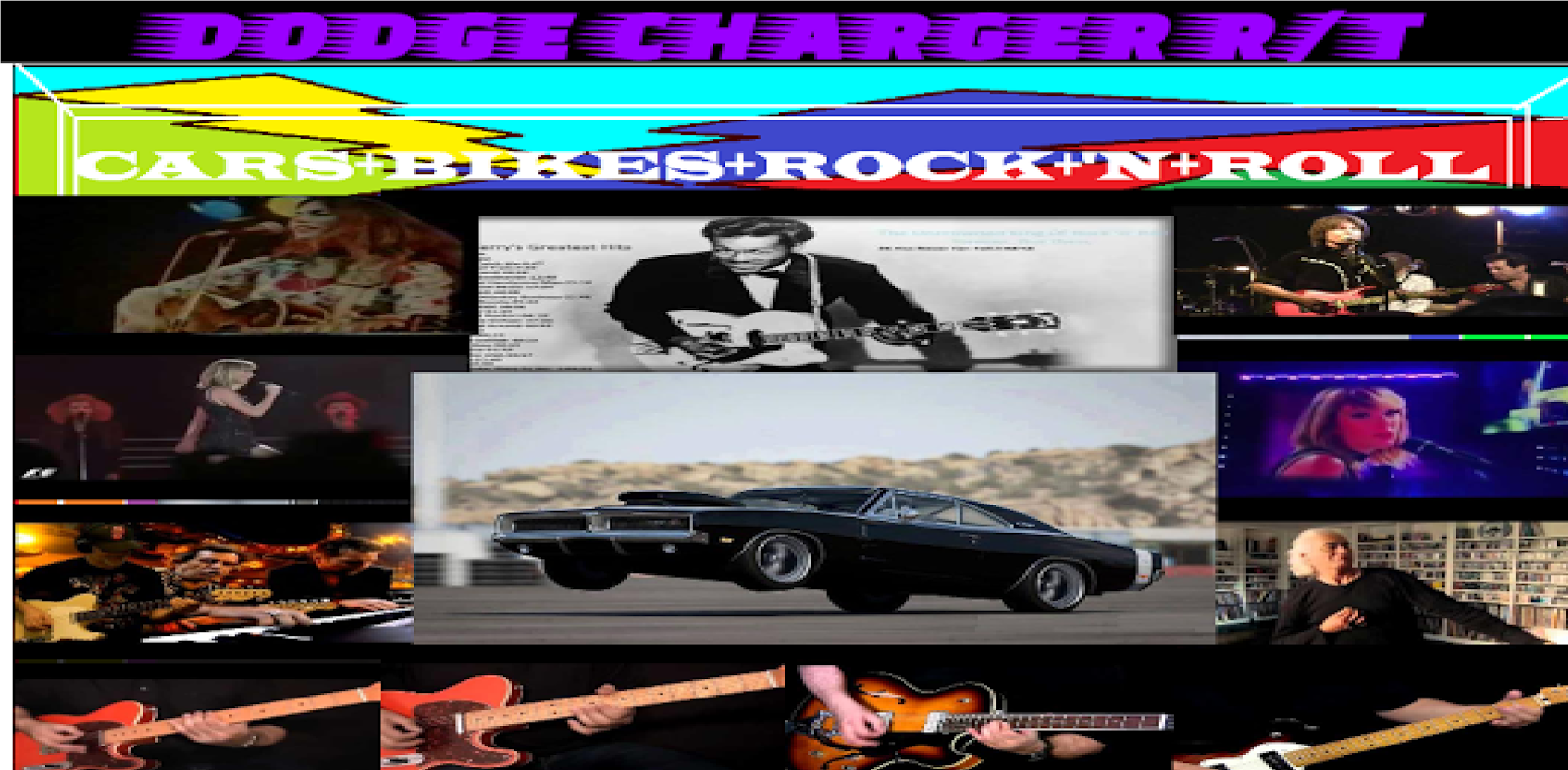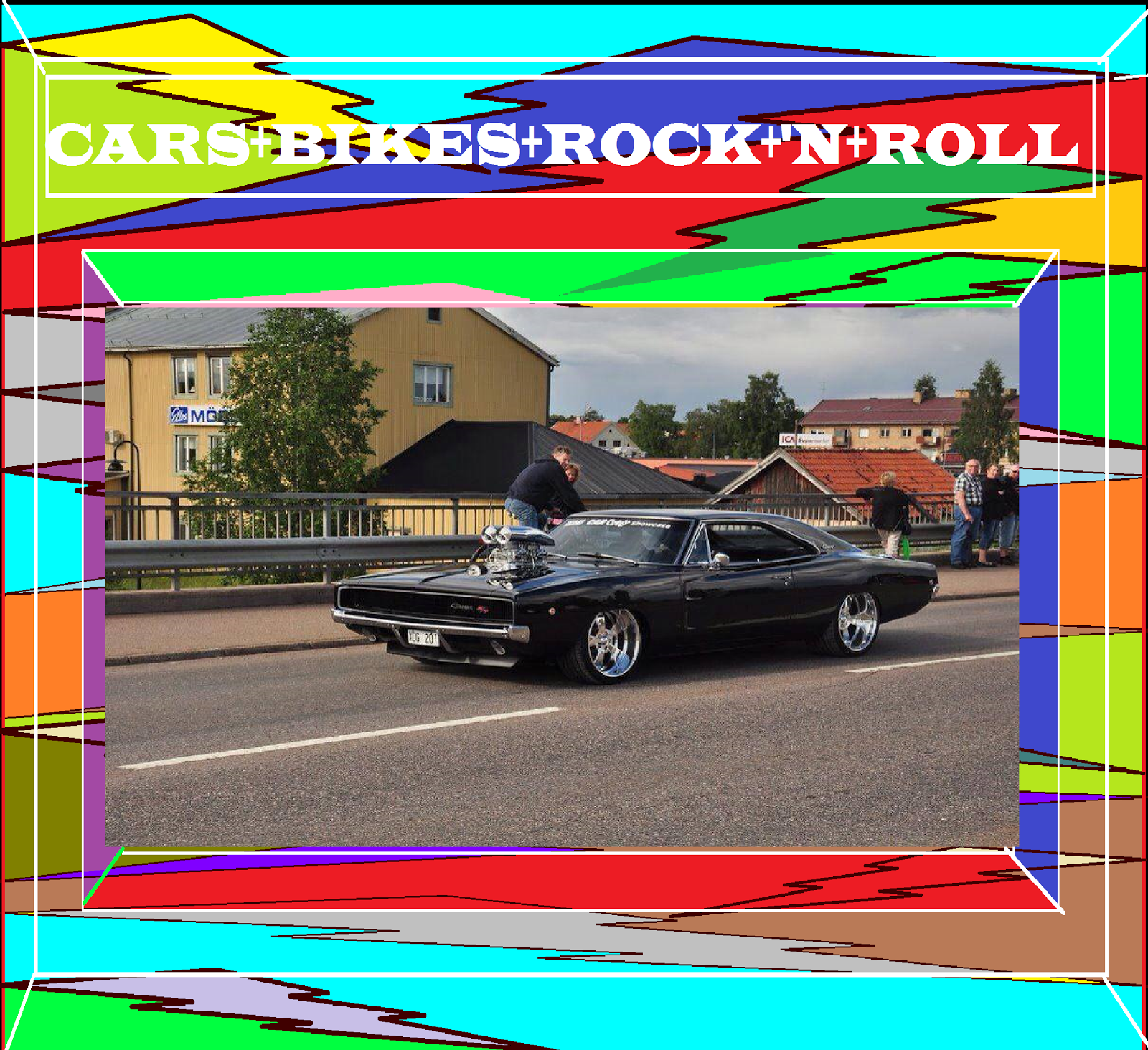Saturday, April 28, 2018
Monday, April 23, 2018
Saturday, April 21, 2018
Tuesday, April 17, 2018
Eddie Cochran - C'mon Everybody
Eddie Cochran
From Wikipedia, the free encyclopedia
| Eddie Cochran | |
|---|---|
 Cochran in 1957 | |
| Background information | |
| Birth name | Edward Raymond Cochran |
| Born | October 3, 1938 Albert Lea, Minnesota, U.S. |
| Died | April 17, 1960 (aged 21) Bath, Somerset, England |
| Genres | |
| Occupation(s) | Singer-songwriter, musician |
| Instruments |
|
| Years active | 1952–1960 |
| Labels | |
| Associated acts | |
Edward Raymond Cochran (October 3, 1938 – April 17, 1960) was an American musician. Cochran's rockabilly songs, such as "Twenty Flight Rock", "Summertime Blues", "C'mon Everybody", and "Somethin' Else", captured teenage frustration and desire in the mid-1950s and early 1960s.[1] He experimented with multitrack recording, distortion techniques, and overdubbing even on his earliest singles.[2] He played the guitar, piano, bass, and drums.[1] His image as a sharply dressed and good-looking young man with a rebellious attitude epitomized the stance of the 1950s rocker, and in death he achieved an iconic status.[3]
Cochran was involved with music from an early age, playing in the school band and teaching himself to play blues guitar.[4] In 1954, he formed a duet with the guitarist Hank Cochran (no relation), and when they split the following year, Eddie began a songwriting career with Jerry Capehart. His first success came when he performed the song "Twenty Flight Rock" in the film The Girl Can't Help It, starring Jayne Mansfield. Soon afterwards, he signed a recording contract with Liberty Records.
Cochran died at age 21 after a road accident, while travelling in a taxi in Chippenham, Wiltshire, during his British tour in April 1960, having just performed at Bristol's Hippodrome theatre. Though his best-known songs were released during his lifetime, more of his songs were released posthumously. In 1987 Cochran was inducted into the Rock and Roll Hall of Fame. His songs have been recorded by a wide variety of recording artists.
Contents
[hide]Early life[edit]
Cochran was born October 3, 1938, in Albert Lea, Minnesota, to Alice and Frank R. Cochran.[2] His parents were from Oklahoma, and he always said in interviews that his parents had some roots in Oklahoma. He took music lessons in school but quit the band to play drums. Also, rather than taking piano lessons, he began learning guitar, playing country and other music he heard on the radio.
Music career[edit]
Early career (1952–1956)[edit]
Cochran's family moved to Bell Gardens, California, in 1952. As his guitar playing improved, he formed a band with two friends from his junior high school. He dropped out of Bell Gardens High School in his first year to become a professional musician.[5] During a show featuring many performers at an American Legion hall, he met Hank Cochran, a songwriter. Although they were not related, they recorded as the Cochran Brothers and began performing together.[6] They recorded a few singles for Ekko Records that were fairly successful and helped to establish them as a performing act. Eddie Cochran also worked as a session musician and began writing songs, making a demo with Jerry Capehart, his future manager. In July 1956, Eddie Cochran's first "solo artist" single was released by Crest Records.[7] It featured "Skinny Jim", now regarded as a rock-and-roll and rockabilly classic. In the spring of 1956, Boris Petroff asked Cochran if he would appear in the musical comedy film The Girl Can't Help It. Cochran agreed and performed the song "Twenty Flight Rock" in the movie.
Later career (1957–1959)[edit]
This section relies largely or entirely on a single source. Relevant discussion may be found on the talk page. Please help improve this article by introducing citations to additional sources. (December 2017) |
In 1957 Cochran starred in his second film, Untamed Youth, and he had yet another hit, "Sittin' in the Balcony", one of the few songs he recorded that were written by other songwriters (in this case John D. Loudermilk). "Twenty Flight Rock" was written by AMI staff writer Ned Fairchild (a pen name—her real name is Nelda Fairchild). Fairchild, who was not a rock and roll performer, merely provided the initial form of the song; the co-writing credit reflects Cochran's major changes and contributions to the final product.
In February 1957 Liberty Records issued Cochran's only studio album released during his lifetime, Singin' to My Baby. The album included "Sittin' in the Balcony". There were only a few rockers on this album, and Liberty seemed to want to move Cochran in a different musical direction, but he refused. In 1957, however, Cochran seemed to find his stride in the famous teenage anthem "Summertime Blues" (co-written with Jerry Capehart). With this song, Cochran was established as one of the most important influences on rock and roll in the 1950s, both lyrically and musically. The song, released by Liberty recording no. 55144, charted at number 8 in 1957. Cochran's brief career included a few more hits, such as "C'mon, Everybody", "Somethin' Else", "Teenage Heaven", and his posthumous UK number one hit "Three Steps to Heaven". He remained popular in the US and UK through the late 1950s and early 1960s, and more of his records were posthumous hits, such as "My Way", "Weekend", and "Nervous Breakdown".
Another aspect of Cochran's short but brilliant career is his work as backup musician and producer.[7] In 1959 he played lead for Skeets McDonald at Columbia's studios for "You Oughta See Grandma Rock" and "Heart Breaking Mama". In a session for Gene Vincent in March 1958 he contributed his trademark bass voice, as heard on "Summertime Blues". The recordings were issued on the album A Gene Vincent Record Date.[8]
In early 1959 two of Cochran's friends, Buddy Holly and Ritchie Valens, along with the Big Bopper, were killed in a plane crash while on tour. Cochran's friends and family later said that he was badly shaken by their deaths, and he developed a morbid premonition that he also would die young. It was shortly after their deaths that he recorded a song (written by disc jockey Tommy Dee) in tribute to them, "Three Stars". He was anxious to give up life on the road and spend his time in the studio making music, thereby reducing the chance of suffering a similar fatal accident while touring. Financial responsibilities, however, required that he continue to perform live, and that led to his acceptance of an offer to tour the United Kingdom in 1960.
UK tour and death (1960)[edit]
On Saturday, April 16, 1960, at about 11.50 p.m., while on tour in the United Kingdom, 21-year-old Cochran was involved in a traffic accident in a taxi travelling through Chippenham, Wiltshire, on the A4. The speeding taxi blew a tyre, the driver lost control, and the vehicle crashed into a lamppost on Rowden Hill, where a plaque now marks the spot. No other car was involved.[9] Cochran, who was seated in the centre of the back seat, threw himself over his fiancée (songwriter Sharon Sheeley) to shield her and was thrown out of the car when the door flew open. He was taken to St Martin's Hospital, in Bath, where he died of severe head injuries at 4:10 p.m. the following day.[10] Cochran's body was flown home, and his remains were buried on April 25, 1960, at Forest Lawn Memorial Park in Cypress, California.[11]
Sharon Sheeley, tour manager Pat Thompkins, and singer Gene Vincent survived the crash, Vincent sustaining lasting injuries to an already permanently damaged leg that would shorten his career and affect him for the rest of his life. The taxi driver, George Martin, was convicted of dangerous driving, fined £50 (and in default of payment six months imprisonment), and disqualified from driving for 15 years (although by some accounts he served no prison sentence).[12] His driving licence was reinstated in 1969.
The car and other items from the crash were impounded at the local police station until a coroner's inquest could be held. David Harman, a police cadet at the station, who would later become known as Dave Dee of the band Dave Dee, Dozy, Beaky, Mick & Tich, taught himself to play guitar on Cochran's impounded Gretsch.[13]
A memorial stone commemorating Cochran was placed on the grounds of St Martin's Hospital, in Bath.[14] The stone was restored in 2010 (on the 50th anniversary of his death) and can be found in the old chapel grounds at the hospital. A memorial plaque was also placed next to the sundial at the back of the old chapel.[15]
Posthumous releases and honors[edit]
A posthumous album, My Way, was released in 1964. Cochran was a prolific performer, and the British label Rockstar Records has released more of his music posthumously than was released during his life. The company is still looking for unpublished songs. One of his posthumous releases was "Three Stars", a tribute to J. P. Richardson, better known as the Big Bopper, and Cochran's friends Buddy Holly and Ritchie Valens, who had all died in a plane crash just one year earlier. Written just hours after the tragedy by disc jockey Tommy Dee, it was recorded by Cochran two days later (Dee recorded his own version several weeks later). His voice broke during the spoken lyrics about Valens and Holly.
In 1987, Cochran was inducted into the Rock and Roll Hall of Fame.[16] His pioneering contribution to the genre of rockabilly has also been recognized by the Rockabilly Hall of Fame. Several of his songs have been re-released since his death, such as "C'mon Everybody", which was a number 14 hit in 1988 in the UK. Rolling Stone magazine ranked him number 84 on its 2003 list of the 100 greatest guitarists of all time. Cochran's life is chronicled in several publications, including Don't Forget Me: The Eddie Cochran Story, by Julie Mundy and Darrel Higham (ISBN 0-8230-7931-7), and Three Steps to Heaven, by Bobby Cochran (ISBN 0-634-03252-6). The Very Best of Eddie Cochran was released by EMI Records on June 2, 2008. On September 27, 2010, the mayor of Bell Gardens, California, declared October 3, 2010, to be "Eddie Cochran Day" to celebrate the famous musician who began his career when living in that city.[citation needed]
Style and influence[edit]
Cochran was one of the first rock-and-roll artists to write his own songs and overdub tracks. He is also credited with being one of the first to use an unwound third string in order to "bend" notes up a whole tone—an innovation (imparted to UK guitarist Joe Brown, who secured much session work as a result) that has since become an essential part of the standard rock guitar vocabulary. Artists such as Joan Jett and the Blackhearts, the Rolling Stones, Bruce Springsteen, Van Halen, Tom Petty, Rod Stewart, T. Rex, Cliff Richard, the Who, the Beach Boys, the Beatles, Led Zeppelin, the White Stripes, the Sex Pistols, Sid Vicious, Rush, Simple Minds, Guitar Wolf, Paul McCartney, Alan Jackson, the Move, David Bowie, Jimi Hendrix, Johnny Hallyday and U2[17]have covered his songs.
It was because Paul McCartney knew the chords and words to "Twenty Flight Rock" that he became a member of the Beatles. John Lennon was so impressed that he invited McCartney to play with his band, the Quarrymen. Jimi Hendrix performed "Summertime Blues" early in his career, and Pete Townshend of the Who was heavily influenced by Cochran's guitar style ("Summertime Blues" was a staple of live performances by the Who for most of their career, until the death of the bassist and vocalist John Entwistle in 2002, and is featured on their album Live at Leeds). The glam-rock artist Marc Bolan had his main Gibson Les Paul guitar refinished in a transparent orange to resemble the Gretsch 6120 played by Cochran, who was his music hero.[18] He was also an influence on the guitar player Brian Setzer, of Stray Cats, who plays a 6120 almost like that of Cochran, whom he portrayed in the film La Bamba.[citation needed]
Saturday, April 7, 2018
Wednesday, April 4, 2018
Subscribe to:
Posts (Atom)


